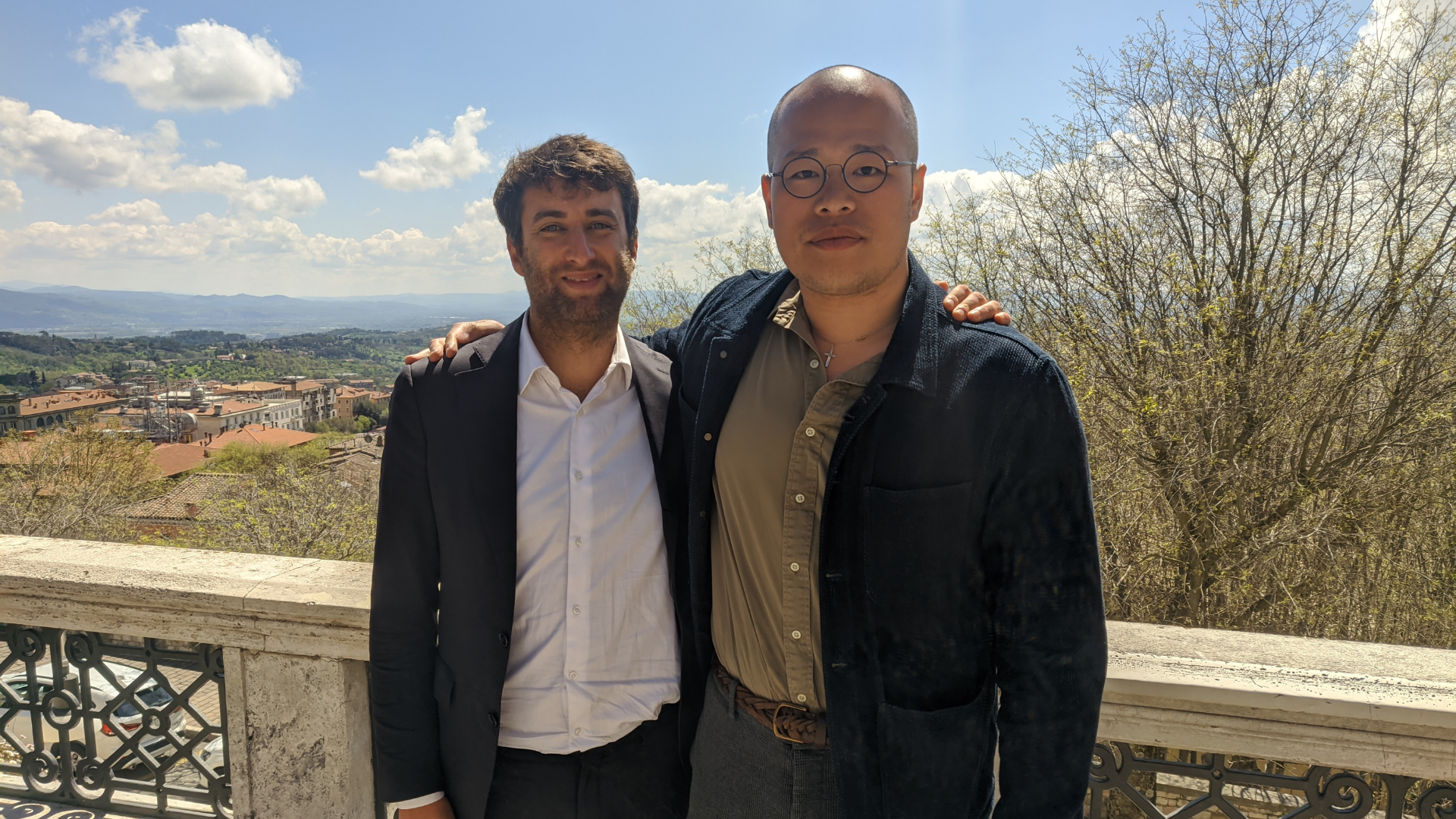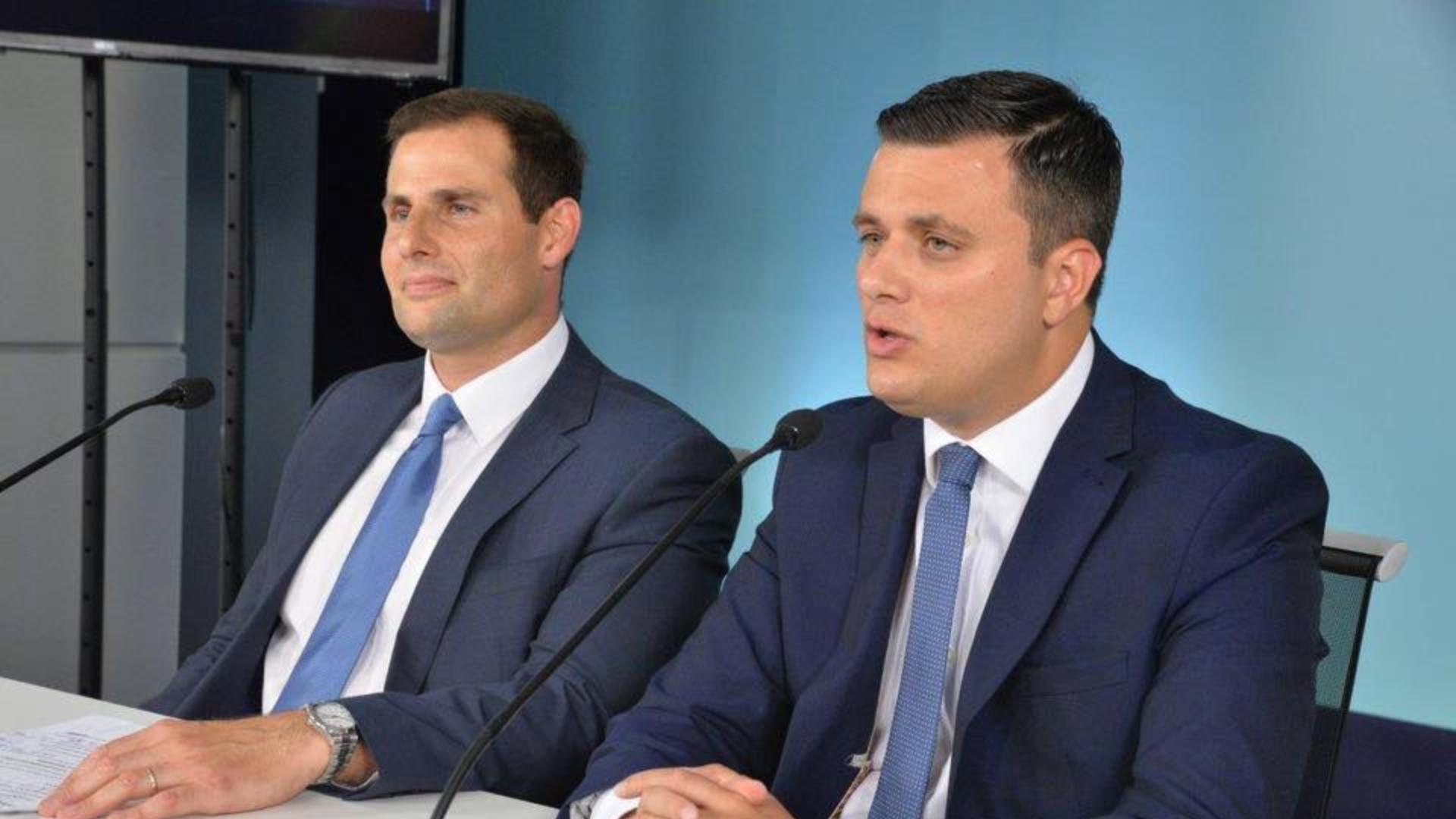A panel at this year’s International Journalism Festival in Perugia discussed how legislation is being weaponised to promote the narrative that journalists are criminals. Such narratives – spread through coordinated attacks by governments and big businesses – rob journalists of their trust and credibility among the public.
The panel included journalist Matthew Caruana Galizia, the son of assassinated journalist Daphne Caruana Galizia.
Caruana Galizia’s legal persecution leading up to her murder is similar to threats faced by other journalists around the world, such as in the cases of Maria Ressa from Rappler in the Philippines and pro-democracy Hong Kong media owner Jimmy Lai.
In both cases, the law had been turned against Ressa and Lai to discredit and silence them.
Speaking to The Shift, Jimmy Lai’s son Sebastien described Caruana Galizia’s assassination as “animalistic”. He contrasted it with the much more “systematic and precise” attack on media freedom happening in Hong Kong but observed that both, ultimately, aim to persecute journalists and “threaten freedom and democracy”.
“My father has been in jail for two years because he used to own a pro-democracy newspaper called Apple Daily, and NEXT Magazine,” Lai said of his father’s case. “When the Hong Kong National Security Law was passed in 2020, he was arrested and denied bail before trial.”
Hong Kong’s National Security Law was ostensibly passed to protect the state’s interests by criminalising acts of secession, subversion, terrorism, and collusion with foreign organisations.
The Chinese state has used the law to persecute journalists promoting Hong Kong’s independence from China, highlighting how legal attacks on media freedom have progressed past defamation lawsuits to misusing much more varied legislation.

Matthew Caruana Galizia expressed support for Sebastien Lai’s father, Jimmy Lai, who was incarcerated by the Chinese state in Hong Kong for publishing pro-democracy media.
Speaking to The Shift, Matthew Caruana Galizia, who has continuously supported Lai’s cause, described other legislative attacks that could be levelled at journalists.
He pointed to how members of the Maltese government attempted to use a tax investigation to discredit and silence his mother in the years leading up to her murder.
He remarked, “It was the dream of many people in power for my mother to be jailed. We believe the tax investigation was purely vexatious since the people behind it were also under investigation by my mother.
“The legislative tools that are supposed to be used by authorities in the public interest, developed with international organisations – like anti-money laundering tools – are then used against journalists and media houses.”
Caruana Galizia cited a similar case in El Salvador where investigative journalist and El Faro founder Carlos Dada was prosecuted over phoney money laundering charges.
“We’re seeing that the better journalists become at their job, the more professional, and the more effective in the investigations, the more harassment and legal threats they face.
“It contradicts the narrative that ‘journalists are unprofessional’, which is what a lot of people who are behind online harassment try to say.”
The conference panel discussed how states worldwide are adopting tactics usually utilised in military warfare for use in the fight against media freedom. Also under discussion was how SLAPP cases, or strategic lawsuits intended to prevent public participation, levelled at newsrooms have evolved from simple defamation suits.
Panel member Caoilfhionn Gallagher, an international human rights lawyer and expert in journalists’ safety and media freedom from Doughty Street Chambers, described the three main tactics in use.
These are: attrition, involving lengthy legal cases designed to wear down journalists and newsrooms with high morale but low resources; decapitation, which involves targeted legal attacks at the heads of organisations in efforts to discredit or silence them; and asymmetric costs, which aims at ensuring legal action taken against newsrooms will always cost them more than the plaintiff.
On Wednesday, The Shift won the 11th of out 18 cases government entities have taken out against The Shift to deny freedom of information requests, in what can be considered an example of attrition.
These are the 18 cases that have been brought by government entities to the Court of Appeal after losing their appeals before the Information and Data Protection Tribunal. A total of 40 cases have been lodged with the IDPC.
The Shift has so far consistently won each case and the subsequent court appeals that have been levelled against it.
Several international press and media freedom organisations have called on the government to drop the cases entirely, as they consider them to be vexatious SLAPP cases.














The bad reputation of journalists stems from the type of journalists working with the tabloid press and some people prefer not to distinguish between tabloid and serious journalists.
The more people are inclined to follow such a narrative of bad journalists, no matter what the paper is, the easier it always have been and remains for corrupt govts to discredit serious journalists. It is always a pity that the public in its wider sense gets so much deluded by partisan propaganda that they have their senses numbed for the truth.
It’s leaders like Trump who brings the press in a bad daylight, every time when they write the truth, immediately those bonobos react with “fake news”, unfortunately many nitwits follow and see that fake news as the only truth. Just look at the Maltese newspapers and the American tv-station FOX and you know what i mean,
Yes, it’s those who prefer populism to serious politics and journalism. I can only agree with you and it’s the same everywhere you look. Worst in countries with an authoritatian or dictatorial regime (sometimes it’s rather hard to tell the difference).
It’s not just the newspapers in Malta, it’s worse than that because there is hardly a real independent broadcasting company with the PL govt increasing its influence an pressure on the national one year by year.
Foreign broadcasting companies only cover news from Malta when there is a huge scandal, mass protests or anything that attracts the interest of international journalism. One is left to get through the jungle of half-truths, twisted stories and hypocritical articles of a media outlet that is itself much involved in all this PL politics, as the shift news has reported for many times. I don’t have to mention the name of that media outlet as it is well known to everybody who reads the media in Malta.
What I always find hard to take is the utter stubbornness of some people who no matter what, cling on to this false partisan propaganda dished out to them by the present PL govt. They really want to have it that way, just like the deluded Trumpists, or the staunch Brexiters. It doesn’t matter whether populism is politically right- or left-wing, people who follow populism like to be treated as fools and don’t care being stupid that way themselves. It is natural that they react with anger when confronted with the truth.
The easy way for them is to take it out on serious journalists. I have read enough comments by people of the aforesaid attitude who even question the profession of a journalist. They say that in Malta, everybody can become a journalist. That is all too superficial to me and just a lame excuse for their own incapability to face the facts and prefer to live with their own illusions, partly fed to them by their propaganda masters.
That is in my opinion what constitutes being a ‘Gahan’. Not less of them consider politics like a sort of a game, not realising that it affects peoples lives in many ways.